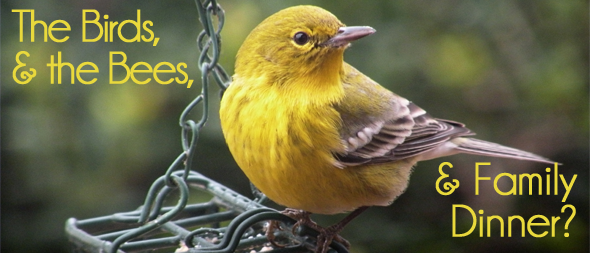
Last Updated on March 20, 2018
“And that is how he proposed to her. Can you believe he knew six years before that he was going to marry her?”
“How did he know?”
“I don’t know. God must have told him.” Answering our youngest son’s question, my husband wraps up his story about a young couple we know and their amazingly romantic engagement.
Our idyllic family dinner – all eight of us present, nice dishes, no piles of mail on the table, yummy turkey vegetable soup, homemade bread, good conversation and laughter – is about to get even better.
After a moment of silence, my youngest looks up from his plate thoughtfully. “If a girl doesn’t marry a boy, can she still have babies?”
The rest of us look around, not sure if we heard him right. Trying to figure out just what track his mind was on, I clarify. “What did you just ask?”
“If a girl doesn’t get married, can she still have babies?”
I was afraid that’s the track he’s on. Two teens clear their throats uncomfortably.
I opt for the simplest answer: “No.”
“Why not?” I knew that was coming.
“Well, there has to be a mommy and a daddy.”
“Why?”
At this point, said two teens scramble to excuse themselves less than gracefully, another son laughs, and my husband mumbles something about it being time for another Passport to Purity weekend. The other two kids are in the dark.
Meanwhile, my youngest continues to wait innocently for an answer.
I look through his glasses into his handsome chocolate brown eyes and begin, “Well, you know how there has to be a male and a female dog to make puppies? It’s kind of like that.” I figure we’ve seen enough romance at the zoo that the analogy might be sufficient. My 13-year-old groans as he escapes the kitchen.
My youngest processes that for a moment, then profoundly and satisfactorily replies, “Oh.”
What mom hasn’t had this conversation? And if you haven’t, it’s probably on the horizon. But there is a little piece of my reality begging to be shared at this point.
My youngest child is one of my children with special needs. Deciding what to share, and when, regarding the birds and the bees is a little bit harder with children whose emotional and social maturity lags behind their physical development. They need to know about the changes in their bodies and be aware of male-female relationships for their own protection, if nothing else, but the information can be overwhelming, scary, or disturbing to a child who is not ready to grow up yet, and may never be.
As with all children, approaching the subject with prayer, discernment, and sensitivity is important, as well as setting aside our own agenda in order to listen to our child’s feelings and proceed slowly, sharing information on a need-to-know basis, and welcoming ongoing communication. Our own positive attitude in talking about the loving, physical act of marriage will help allay fears.
I’m not sure yet when this particular child will get the rest of the story, but hopefully not at dinner!


I have wondered about how to have this conversation, too. I just keep praying about it and hope the Lord will give me the right words to explain it at the right time.